The EU will soon enforce a new regulation requiring companies to provide a Digital Product Passport (DPP) for all items sold in the market. This passport will make essential information available to authorities, companies, consumers, recyclers, and others.
There have been talks about QR codes, barcodes, or links that will be used as the data carrier for the relevant details about each item. The European Commission’s draft regulation on DPPs with final approval is expected in 2024, with implementation for the first product groups (batteries, textiles, electronics) set for 2026.
The DPP will require a database to store all product information. This will involve handling large-scale data and complicated chains, with access needed by various groups, each with different access rights. Manufacturers are unlikely to be able to wait for the draft regulation to be finalized before starting to adopt the DPP.
While the specifics of the regulation are still uncertain, if you are already managing your data in Ragic and wondering if Ragic can cater to DPP needs, Ragic is a software solution that can facilitate product data storage, collaboration with varying degrees of confidentiality, the use of QR codes to carry data, and offers the flexibility to create your own digital product passport format. Here is how you can start:
Create a sheet that contains information about your product that is required in the Digital Product Passport. For example, the sheet below:
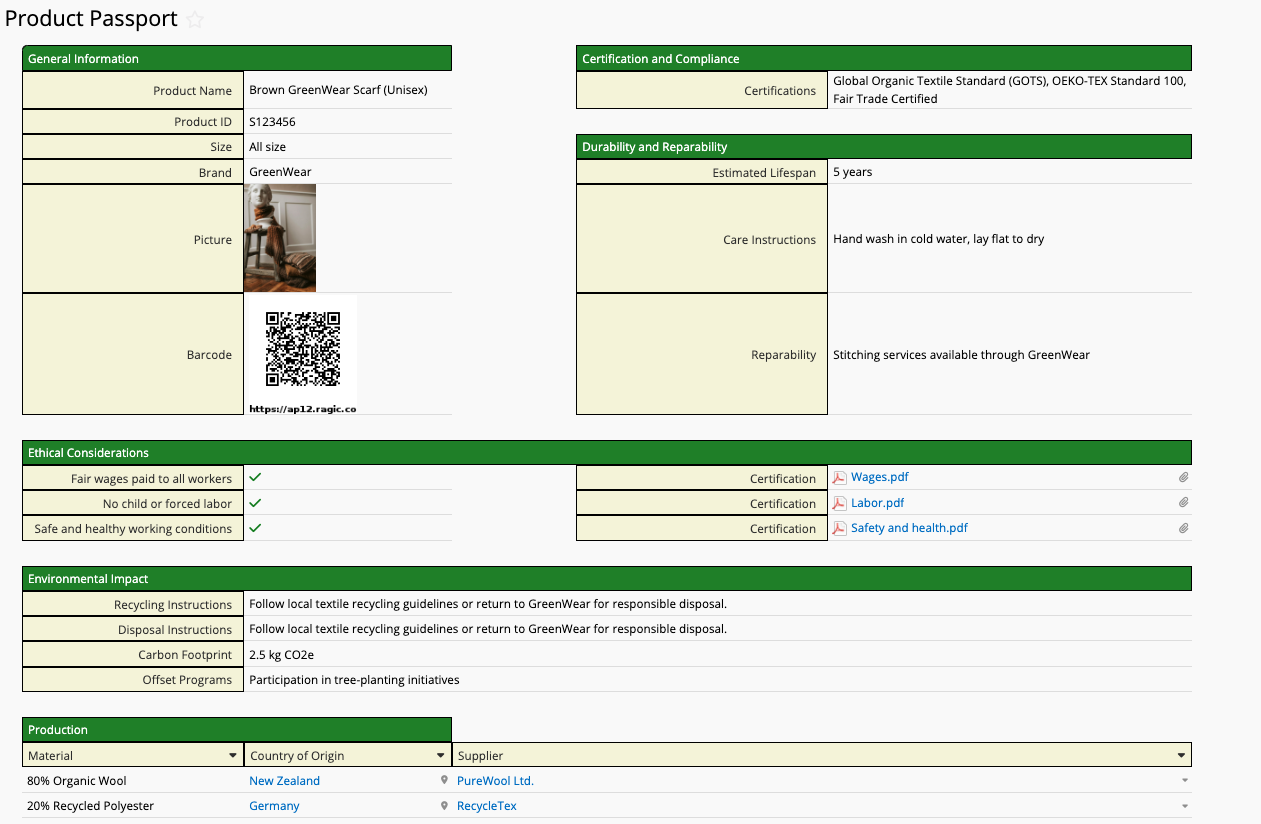
(Above is a sample sheet.)
Select Record URL as the item to generate, and check the Barcode option to display it as a barcode. This allows users to scan the QR code and directly access the specific sheet.
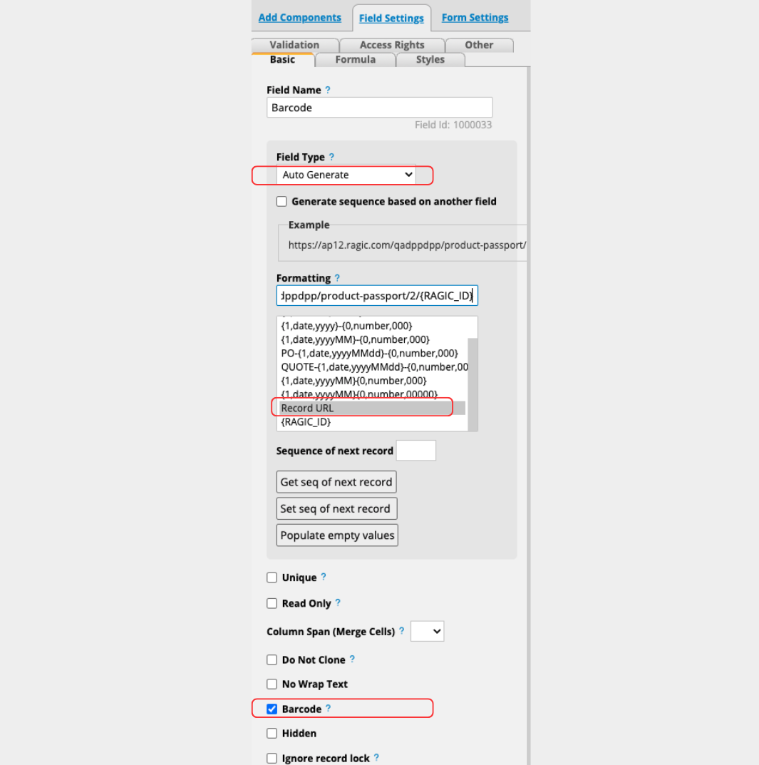
This enables them to view entries without logging in, and they will only have access to view the specific sheet they scan the QR code for, and won't be able to modify it.
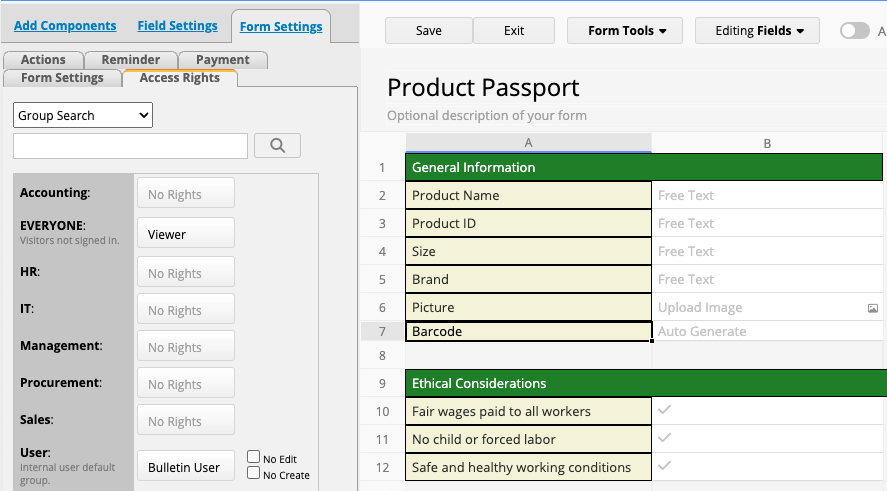
1. For different levels of confidentiality based on the individuals who need access to specific information, you can utilize Field Level Access Rights in Ragic.
For instance, you want to handle all the information of the product in this sheet, not only the information that needs to be shown in the Digital Product Passport. Even if you have set the sheet access rights to EVERYONE as Viewer, you can still hide certain fields from your customers or people who are not in your company.
Let’s say the Supplier information should only be available for procurement staff. Then, for the "Supplier" Subtable field, you can set the EVERYONE rights to No Rights and Procurement rights to Viewer. This approach allows for varying levels of confidentiality across different groups that require access to the sheet.
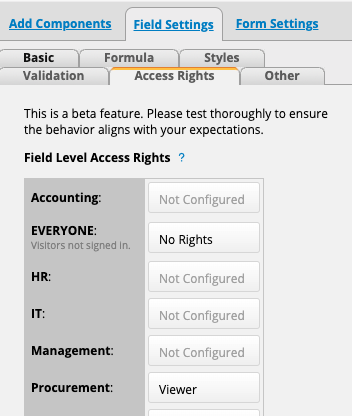
Sheet shown to customers:
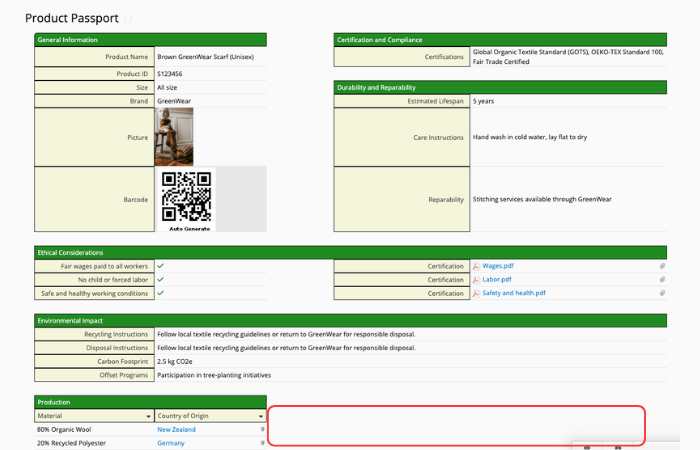
Sheet shown to procurement staff:
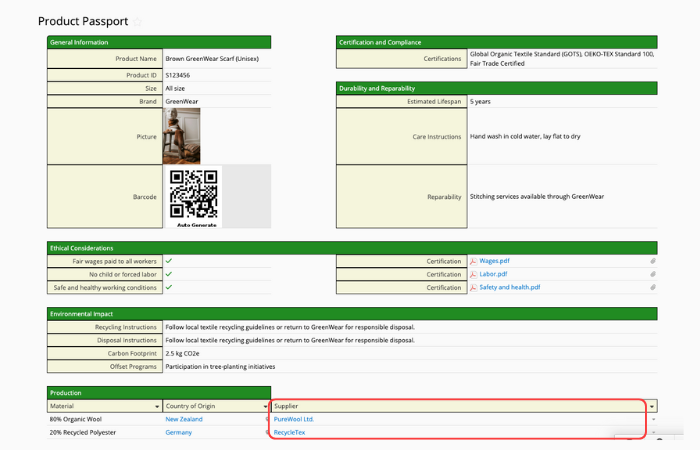
2. If you have created some entries before adding the Digital Product Passport barcode field, remember to click Populate Empty Values to ensure the barcode is generated for those existing entries.
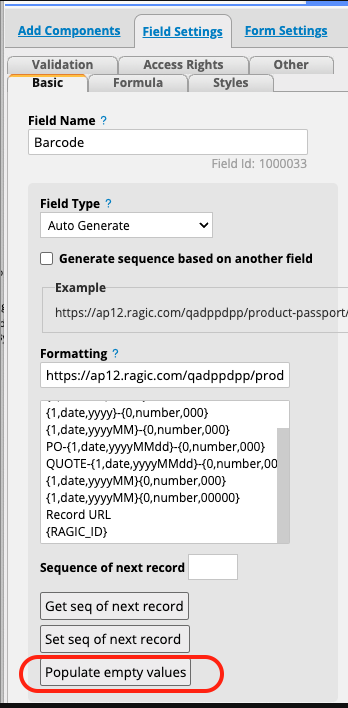
 Thank you for your valuable feedback!
Thank you for your valuable feedback!